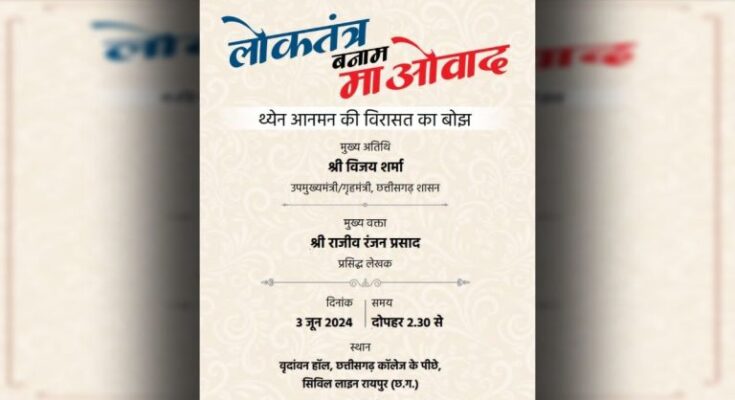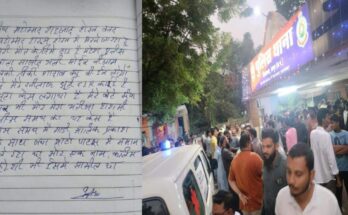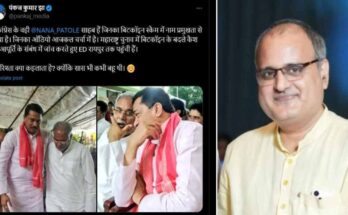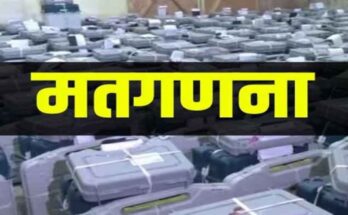Raipur. A seminar on the topic “Democracy vs Maoism – The burden of the legacy of Tiananmen” has been organized on Monday, June 3 at 2.30 pm at Vrindavan Hall, behind Chhattisgarh College, Civil Line Raipur, under the chief hospitality of Deputy Chief Minister and Home Minister Vijay Sharma. The famous writer Rajiv Ranjan Prasad will be the keynote speaker of this seminar organized in collaboration with MD Thakur and Radheshyam Marai of Bastar Peace Committee.
Cardinal Warriors
Amritham Hospital
ISBM University
Agrawal Hospital
PauseUnmute
Fullscreen
Bastar Peace Committee has also shared historical facts regarding the above-mentioned topic of the seminar. It is said that China is the flag-bearer of Maoism, where democracy is sobbing under the iron cover. A country where the only goal is to rule the world by hook or by crook by becoming a superpower by donning the skin of Maoism and relying on the barrel of a gun. The Tiananmen Square of Beijing is a witness to the shedding of the skin of that China and its hideous anti-democracy face. Tiananmen Square is a blood-soaked history of the revolution for democracy in China and its brutal suppression cycle.
On June 4, 1989, a blood-soaked date recorded on the pages of modern global history, thousands of students gathered at this square to protest against the death of Communist Party liberal leader Hu Yaobang. 30 years ago, from April 4 to June 4, Chinese soldiers brutally fired on students and citizens demanding democracy while protesting peacefully. The red stains of the suppression cycle of the Communist government of China can never be erased from Tiananmen Square.
In April 1989, more than 10 lakh protesters gathered at Tiananmen Square demanding political freedom. This was a big blow to the leftist regime in the history of China, because such a political demonstration that lasted for a month and a half had never happened before. These demonstrations awakened the people through cities and universities. The people were demanding freedom from dictatorship, democracy, freedom, social equality, freedom of press and speech. There was anger among the Chinese due to rising inflation, low wages etc. The eyes of the whole world were on this spontaneous demonstration. At the same time, the Communist Party was struggling to deal with this growing mass movement. The incident was being recorded in the pages of history.
On April 17, thousands of students and workers gathered in Tiananmen Square to protest against the death of Communist Party’s liberal leader Hu Yaobang. By April 18 – 21, autonomy and freedom were included in the agenda of the protesters. On April 27, more than a lakh students broke the police cordon and moved forward. On May 15, the public welcome program of Soviet leader Mikhail Gorbachev had to be cancelled during his visit to China. On May 19, Communist Party General Secretary Zhao Ziyang defended the protest. On May 20-24, top leader Deng Xiaoping imposed martial law. On May 29-30, the Goddess of Democracy statue was erected facing the picture of Mao Tse Tung on the Tiananmen Gate.
On June 3, more than 2 lakh soldiers entered Beijing and 36 protesters were killed. On June 4, crushing the resistance, army troops entered Tiananmen Square. The statue of the Goddess of Democracy was blown up by tanks. When the students protested, the soldiers sitting in armored vehicles fired indiscriminately and started crushing the protesters brutally. On June 5, a single man stood in front of the tanks on Chang’an Avenue, who was later named “Tankman”. Time magazine later considered him one of the 100 most influential people of the 20th century.
In fact, Deng Xiaoping, who took power after Mao, initiated economic reforms to improve the economy. With the open economy, problems like inflation, employment crisis, monopoly on resources, corruption and nepotism started arising. Restrictions on press and expression added fuel to the fire in society. The result of this was the student movement of 1986-87. By 1989, discontent began to spread rapidly and by April-May its effect on Chinese society was clearly felt. Seeing the situation going out of control, martial law was imposed in China and large-scale arrests of student leaders and their leaders began. This worsened the situation further. In such an environment, the barbaric repression at Beijing’s Tiananmen Square made China a villain across the world. After this repression, many countries imposed political and economic sanctions on China. After this repression, capitalism rose rapidly in China and today it has become a symbol of capitalism. The barbaric repression that took place at Tiananmen Square is not remembered in China, but is remembered in the rest of the world. The Chinese government made every effort to remove this massacre from history, which has been the method of communist systems. In China, even mentioning that incident is a crime.




